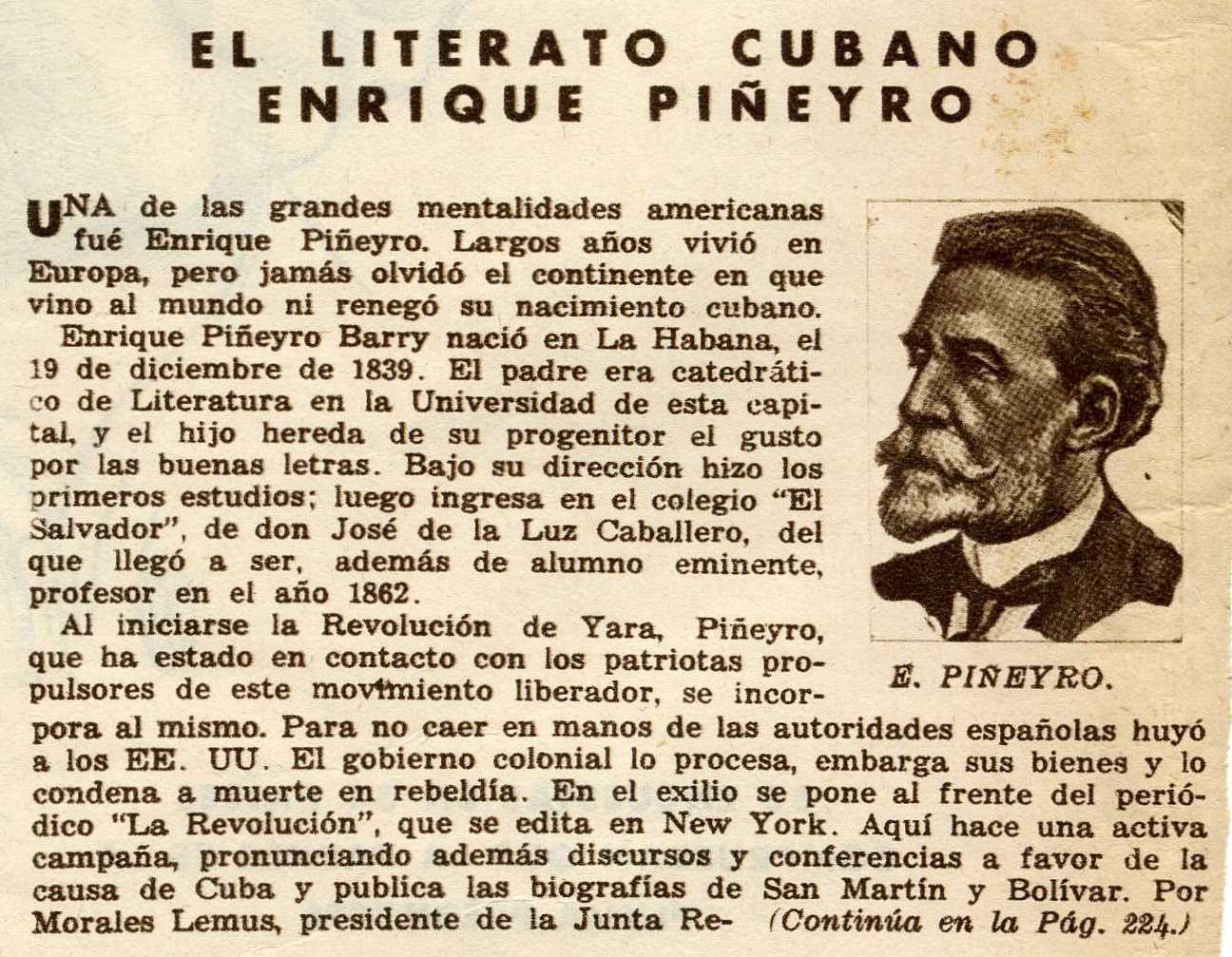2.5.1.2 The critical work of Enrique Piñeyro (1839 – 1911)

Enrique Piñeyro studied law and philosophy, was a professor in El Salvador, and was interested in various scientific subjects. He did not dedicate himself to literary creation, and this attitude would contribute to the awareness of criticism as a separate branch of creation itself, albeit one that is both taxed and taxing. Despite his knowledge of various disciplines, he did not combine them with the study of literature, and the latter remained his greatest passion, as he would attest:
“I wanted to be a book critic, to see the hidden depths of literature, to find the unspoiled source from which the ideas and forms of literary works sprang. That has been my lifelong pursuit. I don’t know to what extent I’ve achieved it, for I have always maintained a disciple-like attitude, constantly learning and experimenting.”
This disciple-like attitude led him to take seriously the teachings of Ramón Zambrana, with whom he would nevertheless engage in famous polemics. In addition to Cuban literature, he also studied French and other works, which, far from distancing him from his insularity, helped him maintain a fresh and up-to-date perspective on literary events at a “global” level, even though many literatures were still silent or subject to similar discrimination to that suffered by the societies that created them.
Piñeyro was primarily interested in narrative, where he found himself at a rather complex pace as Romanticism waned and the tenets of the realist novel took hold. He also worked in theater, where a study of the work of Luaces stands out, which remained unpublished and unfinished following the latter’s death. Regarding poetry, he was able to intuit the pernicious influence not so much of bad taste but of the open use of this label to classify figures and periods.
He also introduced positivism as a paradigm for the analysis of literary texts, which would prove to be a step forward at the time, although it failed glaringly in its approach to issues related to subjectivity. His intuition and vast knowledge allowed him to delve deeper into his analyses, pursue the accuracy of his assessments, and ultimately develop his own unique perspective, a precursor to other perspectives that would develop in the late 19th century.








